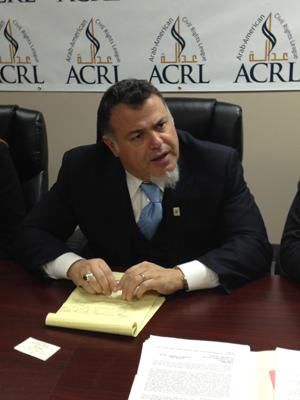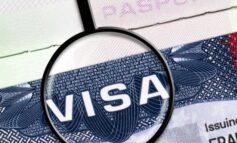FALLS CHURCH, VA — The federal government shares its terrorist watch list with over 1,400 different private groups, a report from the Associated Press said on Tuesday.
According to the AP, Timothy Groh, the deputy director of the FBI’s Terrorist Screening Center (TSC), said in a written statement that 1,441 companies total can access the watch list, which is compiled by the center.
Groh’s statement was uncovered as part of a class-action lawsuit in federal court in Alexandria, VA, which was filed by Muslim Americans who say they have been wrongly included on the list.
Among those who have gotten their hands on the list include private universities, security staff at jails and hospitals, and several other groups. In order to gain access, a group must be linked to the criminal justice system, a report from The Hill said.
“We’ve always suspected there was private-sector dissemination of the terror watch list, but we had no idea the breadth of the dissemination would be so large,” said Gadeir Abbas, an attorney with the Council on American-Islamic Relations, to the AP.
The government has previously refused to share the list with private groups, the AP said.
The TSC “does not work with private partners, and that watch list status itself … (it) is considered law enforcement sensitive information and is not shared with the public,” The Hill reported.
According to Abbas, the list has many incorrect names and is basically a collection of “innocent Muslims who have never committed a crime.”
“It is a fool’s errand,” Abbas said. “They are trying to predict, among the innocent, which people will be terrorists. That is an impossibility.”
Attorney Nabih Ayad of Detroit, who is also the chairman of the Wayne County Airport Authority Board, is among those who have filed class-action lawsuits against the federal government, which is the only way to remove those unjustly added to the list.

Nabih Ayad has filed a lawsuit against the federal government over the watchlist.
“We’ve always had an issue with it, they don’t give you a full warning that your name is on the list and they don’t give you a remedy to challenge that list,” he said on Wednesday.
“And if you are on that list you’re going to be fundamentally prejudiced against.”
Ayad has long had concerns about how the list may be used against innocent people.
“Us in the Civil Rights community have always raised our concerns about the far reaching effect of this watch list,” he said. “As an attorney who has litigated against this watch list and the no fly list, I’ve always been concerned that the government could intentionally leak (the information) to private agencies, and that it would have a detrimental effect on those individuals that have been placed there without due process of law.”
The American Civil Liberties Union (ACLU) has said on its website that the list likely has more than one million names on it total and had been growing at a rate of 20,000-plus names as of March 2008.
It criticized the list because it ensnares innocent travelers, and because it diverts attention and resources from identifying and finding real terrorists.
“It’s fundamentally flawed and sets a bad precedent,” Ayad said. “It violates individuals’ due process rights and I think it should be challenged.”
He added that it’s discriminatory in a sense because it’s mostly Muslim Americans on the list.
“There’s nothing more than damning than associating them with a terrorist, a person that tries to do harm to the United States,” Ayad said, adding that the government should be transparent about who is on the list and what they can do to remove themselves from it.






Leave a Reply